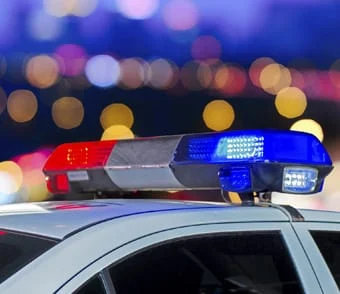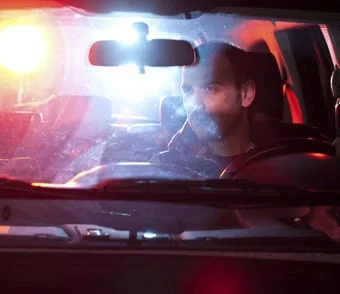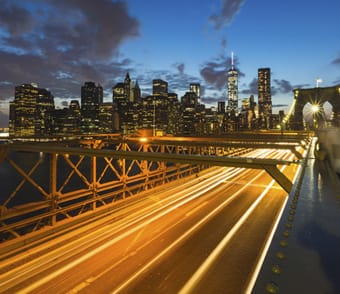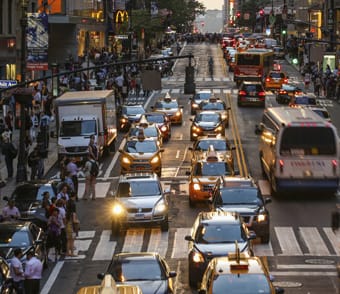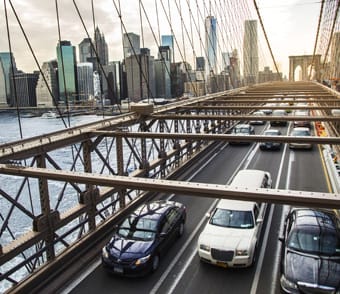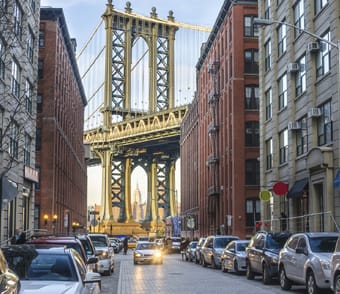Refusing Breathalyzer Lawyer
Aggressive Protection Of Your Rights at Breath Test Refusal Hearings
At The Law Office of Craig Bondy, we recognize the complexities that arise when one refuses a breathalyzer test in New York. Facing such charges can be overwhelming, but our dedicated Refusing Breathalyzer Lawyer team is here to guide you every step of the way.
Can You Refuse a Breathalyzer Test in New York?
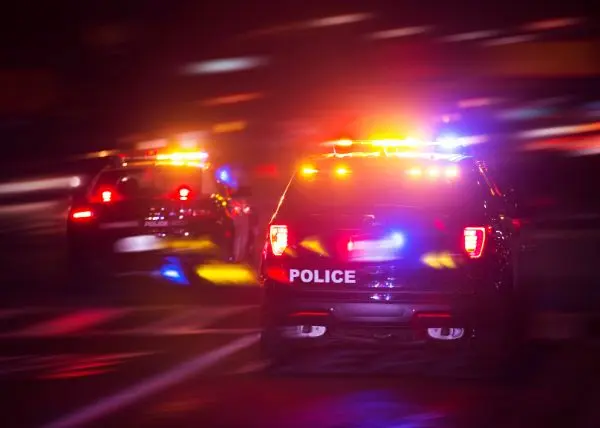
The question of whether you can refuse a breathalyzer test is both a legal and a practical one. While you technically have the ability to refuse, there are legal consequences to doing so. Here’s a breakdown based on U.S. general practices and New York State law:
General U.S. Perspective:
- Implied Consent Laws: Most states in the U.S. have implied consent laws, which means that when you obtain a driver’s license, you are implicitly agreeing to submit to chemical tests (like breathalyzers) if you’re suspected of driving under the influence (DUI) or driving while intoxicated (DWI).
- Consequences for Refusal: Refusing the breathalyzer test will often result in an automatic license suspension or revocation for a specified period, regardless of whether or not you’re later found guilty of a DUI/DWI. This penalty is administrative and is separate from any criminal penalties you might face.
- Use in Court: In some jurisdictions, your refusal can be used as evidence against you in court. The prosecution might argue that your refusal indicates consciousness of guilt.
New York Specifics:
- Immediate License Suspension: If you refuse a breathalyzer test in New York, your license will be immediately suspended pending a hearing.
- DMV Refusal Hearing: After the refusal, you’ll be scheduled for a hearing at the Department of Motor Vehicles (DMV). If the refusal is upheld at this hearing, your license can be revoked for at least one year.
- Monetary Penalties: In addition to license revocation, New York imposes a fine for refusing a breathalyzer if you’re convicted of the refusal at the DMV hearing.
- Potential as Evidence: As in many other states, New York allows your refusal to be introduced as evidence in a DUI/DWI trial. The jury or judge can interpret this in various ways, but it’s commonly seen as evidence suggesting the driver believed they were impaired.
- Aggravated Consequences for Repeat Offenders: If you’ve previously refused a test or been convicted of a DUI/DWI, the penalties for refusing a breathalyzer in New York can be more severe.
Conclusion
While you technically “can” refuse a breathalyzer test, doing so carries significant legal repercussions. If you’re faced with this decision, it’s essential to be informed about your state’s laws and penalties. If you’ve refused a test or are dealing with the consequences of such a decision, it’s advisable to consult with a legal professional familiar with DUI/DWI laws in your jurisdiction.
What Happens After I Refuse a Breathalyzer in New York?
Refusing a breathalyzer test in New York brings about a series of events and consequences. Here’s a step-by-step breakdown of what typically happens after a refusal in the state:
1. Immediate License Suspension
Once you refuse the test, the arresting officer will confiscate your driver’s license on the spot. You will be issued a temporary license, which is only valid until your refusal hearing.
2. Arraignment
Within 24 hours of your arrest, you will likely be arraigned before a judge. At this point, the judge will be informed of your refusal, and your temporary driving privileges may be suspended pending the outcome of a Department of Motor Vehicles (DMV) refusal hearing.
3. Scheduling of a DMV Refusal Hearing
After your refusal, a hearing will be scheduled at the DMV. This is a separate administrative process from any criminal DWI proceedings and solely focuses on the refusal itself.
4. DMV Refusal Hearing
This hearing usually takes place within a few weeks after the refusal. At the hearing, the administrative law judge will determine:
- Whether the police had a valid reason to believe you were driving under the influence.
- Whether you were properly informed of the consequences of refusing the test.
- Whether you actually refused the test.
Outcomes of the DMV Hearing
- If the judge finds in your favor: Your license will be reinstated, but you may still face DWI charges in criminal court.
- If the judge upholds the refusal: You will face an automatic license revocation for at least one year for your first refusal. There’s also a civil penalty of $500 for a first refusal ($750 for those who refuse with a prior DWI within the last five years).
Criminal DWI Proceedings
Apart from the DMV hearing, you will also face DWI charges in criminal court. Your refusal can be introduced as evidence, and the prosecutor might argue that your refusal suggests consciousness of guilt.
Potential Additional Penalties
If convicted in criminal court, you might face other penalties such as fines, jail time, probation, mandatory alcohol education programs, and the installation of an ignition interlock device on your vehicle.
Seeking License Reinstatement
After the revocation period, you must apply to get your license reinstated. This often requires paying a fee and potentially undergoing a driver reevaluation. It’s advised to work with a refusing a breathalyzer lawyer to get back on the road.
Increased Insurance Premiums
Following the refusal and any subsequent DWI conviction, your auto insurance premiums are likely to increase.
Impact on Future Offenses
If you have future run-ins with the law related to DWI, this refusal can exacerbate penalties and consequences, especially if it’s not your first offense.
Given the intricate legal implications of refusing a breathalyzer test in New York, it’s essential to consult with a knowledgeable DWI Lawyer if you find yourself in this situation. They can guide you through the process and represent your best interests both at the DMV hearing and in criminal court.
How Can a Refusing Breathalyzer Lawyer Help?
Here’s how a refusing a breathalyzer lawyer can help:
Deciphering the Consequences
New York’s refusal consequences can be severe. We ensure you’re fully informed about potential license suspensions, fines, and other repercussions.
Representation at DMV Hearings
When you refuse a breathalyzer, a DMV hearing concerning your license suspension is imminent. We stand by your side, challenging any evidence and testimony law enforcement may present.
Strategizing Your Defense
The prosecution might interpret a refusal as an admission of guilt. Our experienced team crafts a defense that addresses and counteracts such assumptions, considering factors like machine accuracy and the procedure’s legality.
Evaluating the Legitimacy of the Traffic Stop
We meticulously assess if the police had a valid reason to pull you over and demand a breathalyzer test. Any inconsistencies or unlawful actions can be pivotal in your defense.
Upholding Your Rights
We’re dedicated to safeguarding your rights. Every action taken by law enforcement will be meticulously examined to ensure that they followed all protocols and respected your rights.
Plea Deal Negotiations
If a trial might not favor your case, we negotiate with the prosecution, aiming for a plea deal that could reduce the charges or penalties you’re confronting.
Guidance on License Restoration
Navigating the reinstatement of driving privileges can be convoluted. We guide you through the process and advise on potential avenues to obtain conditional or hardship licenses during suspension.
Holistic Defense Approach
Beyond the refusal itself, we delve deep into all facets of your case, from the rationale behind the initial stop to any field sobriety tests you may have undergone. This comprehensive approach ensures you’re defended robustly.
With The Law Office of Craig Bondy on your side, you’re not just getting a refusing a breathalyzer lawyer—you’re getting a dedicated ally committed to fighting for your rights and guiding you through the challenging landscape of New York’s DWI laws.
Contact us immediately from wherever you are in New York or New Jersey — by phone at 212-257-8321 or by email message. Hablamos Español.
Refusing a Breathalyzer Test in NY: Frequently Asked Questions
What is the “implied consent” law in New York?
In New York, when you obtain a driver’s license, you automatically give your consent to undergo chemical tests, like breathalyzers, if you’re suspected of driving while intoxicated (DWI). This is known as the “implied consent” law.
What happens if I refuse the breathalyzer test in NY?
If you refuse, your license will be immediately suspended and will remain suspended pending a hearing. If the refusal is confirmed at the DMV hearing, you could face a minimum one-year license revocation.
Can my refusal be used against me in court?
Yes, your refusal can be introduced as evidence in a DWI trial in New York. It’s up to the judge or jury to interpret the significance of the refusal.
Are there fines associated with refusing a breathalyzer test in NY?
Yes, if the refusal is upheld at the DMV hearing, you’ll face a fine. The exact amount can vary based on whether it’s your first offense or a subsequent one.
What if I’ve refused a breathalyzer in the past or had previous DWI convictions?
Penalties for refusing a breathalyzer become more severe for repeat offenders. If you’ve had prior refusals or DWI convictions, you could face longer license revocations and higher fines.
Can I get a conditional or hardship license if I refuse the test?
Generally, if your license is revoked for refusing a breathalyzer test, you are not eligible for a conditional or hardship license.
How soon after my refusal will the DMV hearing take place?
The DMV refusal hearing typically takes place within a few weeks after the refusal, but the exact timing can vary.
Do I need a lawyer for the DMV refusal hearing?
While it’s not mandatory, having a lawyer can significantly benefit you. An experienced refusing a breathalyzer lawyer can challenge the evidence and potentially prevent the revocation of your license.
What happens to my vehicle if I’m arrested after refusing the test?
Depending on the situation, your vehicle may be impounded. In some cases, especially with repeat offenders, the vehicle could be subject to forfeiture.
Is refusing the test ever a good idea?
This is a complex question and depends on individual circumstances. Refusing might eliminate certain evidence against you but introduces other legal complications. Always consult with an attorney for guidance tailored to your situation.
Call 212-257-8321 to receive a free, no-obligation ticket evaluation from The Law Office of Craig Bondy or reach us by email.
Contact Our team Today
Fields marked with an * are required
"*" indicates required fields
Contact Our Firm
The Law Office of
Craig Bondy
225 Broadway, Room 850
New York, NY 10007
phone: 212-257-8321






